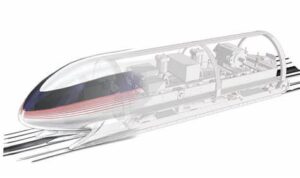Explore the current hot topics and trends surrounding process automation, highlighting its transformative potential in various industries.
In today’s fast-paced and technology-driven business landscape, process automation has emerged as a powerful tool for enhancing operational efficiency and productivity. As businesses face increasing competition, rising customer expectations, and the need for cost optimization, process automation offers unprecedented opportunities for streamlining workflows, reducing errors, and driving innovation. In this article, we will explore the current hot topics and trends surrounding process automation, highlighting its transformative potential in various industries.
Intelligent Robotic Process Automation (RPA)
Intelligent Robotic Process Automation (RPA) is revolutionizing business operations across industries. By leveraging AI and machine learning capabilities, RPA can automate repetitive and rule-based tasks that were previously performed by humans. From data entry and invoice processing to customer support and HR onboarding, RPA enables organizations to improve accuracy, reduce processing times, and free up valuable human resources for more complex and strategic tasks. With RPA, businesses can enhance efficiency, reduce costs, and drive overall productivity.
Hyper Automation and Digital Workforce
Hyper automation represents the convergence of various automation technologies, including RPA, AI, machine learning, and process mining. It allows organizations to create a digital workforce that can handle end-to-end processes autonomously. By automating complex workflows that involve multiple systems and data sources, hyperautomation eliminates bottlenecks, accelerates decision-making, and enhances overall business agility. The digital workforce, in combination with human workers, can transform organizations into highly efficient and flexible entities capable of delivering superior customer experiences.
Data-Driven Decision Making
Process automation generates vast amounts of valuable data that can be leveraged for informed decision making. By integrating process automation tools with advanced analytics and business intelligence platforms, organizations can gain actionable insights into operational performance, process bottlenecks, and areas for improvement. With real-time data and analytics, businesses can optimize processes, identify trends, and make data-driven decisions that drive operational excellence and enhance business outcomes.
Intelligent Document Processing (IDP)
Intelligent Document Processing (IDP) leverages AI and machine learning algorithms to automate the extraction and interpretation of data from unstructured documents such as invoices, contracts, and forms. By automating document processing tasks, businesses can eliminate manual errors, reduce processing times, and improve accuracy. IDP streamlines document-intensive workflows, enhancing efficiency and compliance while reducing operational costs.
Workflow Orchestration and Collaboration
Automation is not limited to individual tasks; it can also optimize end-to-end workflows and facilitate collaboration between teams and departments. Workflow orchestration platforms enable organizations to define, automate, and monitor complex business processes that involve multiple stakeholders and systems. By automating handoffs, approvals, and notifications, organizations can accelerate process execution, reduce delays, and enhance cross-functional collaboration. Workflow automation ensures seamless coordination and efficient resource allocation, leading to improved overall productivity.
The Human-Automation Collaboration
As process automation advances, it is crucial to recognize the role of human workers in collaboration with automation technologies. Organizations must identify opportunities for humans and machines to work together, leveraging the strengths of each. Human workers bring creativity, critical thinking, and emotional intelligence to the table, while automation technologies excel in repetitive and data-intensive tasks. Organizations that foster a culture of collaboration and upskilling can achieve optimal results by harnessing the combined power of human expertise and process automation.
Process automation is reshaping industries, enabling organizations to achieve unprecedented levels of efficiency, productivity, and innovation. With intelligent RPA, hyper automation, data-driven decision making, IDP, workflow orchestration, and the human-automation collaboration, businesses can unlock their true potential and gain a competitive edge in the digital era. However, it is essential to approach process automation strategically, considering the unique needs and requirements of each organization. By embracing automation technologies and fostering a culture of continuous improvement, businesses can navigate the evolving business landscape, drive growth, and deliver exceptional value to customers.
The future belongs to organizations that leverage process automation to optimize operations, streamline workflows, and empower their workforce. By embracing this transformative trend, businesses can unlock new opportunities, enhance efficiency, and position themselves as industry leaders in a rapidly evolving world. The time is now to embrace process automation and embark on a journey of digital transformation that will shape the future of business.
The Perfect Planner Team is here if you have any questions about Process Automation, and we offer a free consultation service. If you would like to connect with us on this article or any other topic, please message us on LinkedIn, shoot us an email at info@perfectplanner.io, visit our website at www.perfectplanner.io, or give us a call at 423.458.2979.
Author: Thomas Beil
Publication Date: September 5, 2023
© Copyright 2023 Perfect Planner LLC. All rights reserved.






